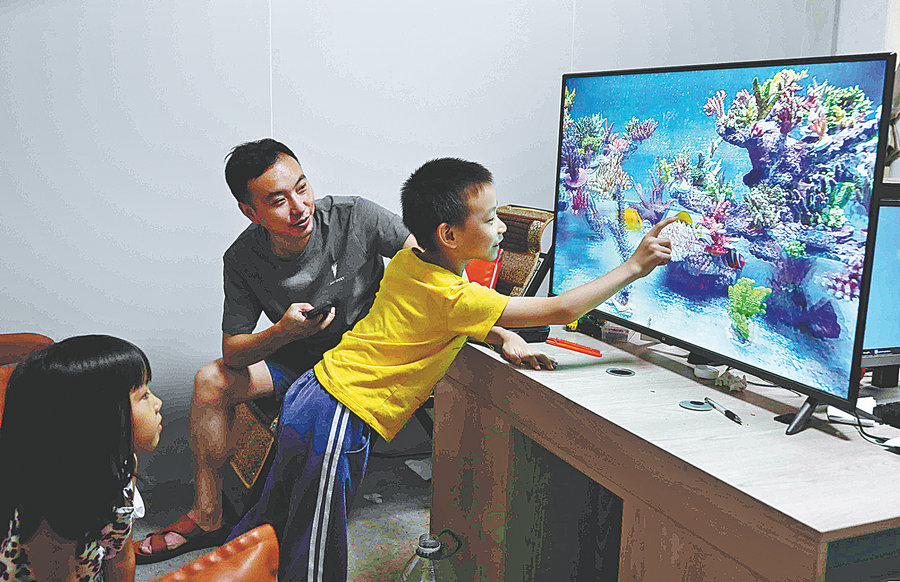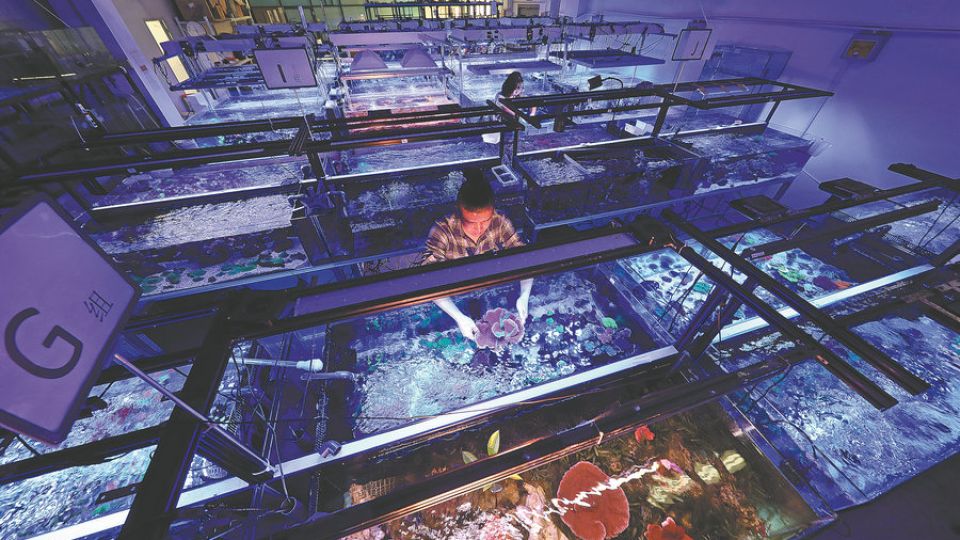May 31, 2022
BEIJING – Coral is the genie of the sea. In the 1960s, the classic opera Red Coral made a splash across the nation with its melodic theme song Ode to Coral, and the romantic lyrics, “red flowers shine on the blue sea”, have overwhelmed countless young people to appreciate the beauty of coral.
As an integral part of the marine ecological system, coral reefs are dubbed “tropical rainforests” of the ocean. However, in recent years, due to climate warming, acidification, pollution, and overharvesting, more than one-third of the world’s coral reef ecosystems have been severely degraded.
Scientists have called on the public to protect corals. In some of China’s offshore waters, corals are also facing a crisis of survival, as the difficulty in large-scale artificial breeding of corals is a worldwide problem.
On the south bank of Taihu Lake in Zhejiang province, the coral project research team led by Feng Qiwei, after more than 10 years of diligent work, has successfully solved the technical bottleneck of large-scale coral artificial reproduction, in a controllable circulating water environment. In 2021, the number of their live coral seedlings grew from about 8,000 to more than 30,000, and the survival rate remained above 90 percent.

Feng Qiwei watches the growth of the corals. He treats these coral seedlings as his own children. [Photo by WU JIANXUN/FOR CHINA DAILY]
Feng, 35, is the inventor of this “microbial water quality treatment and culture technology” and the technical director of the coral artificial breeding project. Interestingly, he chose to conduct a large-scale breeding experiment in marine ecology by the Taihu Lake, and build a multilevel marine ecosystem through the symbiosis of fish, coral, algae and other microorganisms.
“I liked chemistry in high school, so I majored in chemical engineering in college. Since I like playing games, I joined a gaming company to work as a designer. Ten years ago, after I came into contact with coral, I was deeply attracted by this magical animal,” he says.
At that time, Feng realized the prospect of artificial breeding when he saw news about coral protection on the internet. He threw himself into the campaign of bringing coral back to the sea through artificial breeding studies.

In order to promote the growth of corals, researchers grind various nutrients into powders in a certain ratio, and then feed the corals through conduits. [Photo by WU JIANXUN/FOR CHINA DAILY]
“Our goal is to cultivate corals in an artificial environment to improve their heat, acid, and insect resistance, and make it possible to restore and plant large-scale wild corals in the future,”Feng says. He hopes that the corals they breed will return to the sea, so that the underwater world where corals grow will still be full of vitality.

For the “blue dream” in his heart, Feng has spent countless days and nights studying in the laboratory. [Photo by WU JIANXUN/FOR CHINA DAILY]

Coral larvae are fragile. Abnormal water temperature and bacterial infection can easily lead to coral bleaching and death. Technicians should remove diseased branches in time. [Photo by WU JIANXUN/FOR CHINA DAILY]

Feng Qiwei discusses with a colleague the possibility of scaling up coral breeding.[Photo by WU JIANXUN/FOR CHINA DAILY]

Feng uses his mobile phone to control various environmental conditions for coral growth remotely. [Photo by WU JIANXUN/FOR CHINA DAILY]

Feng’s two children are very interested in the underwater world. Feng hopes that children can see the corals he has planted at the bottom of the sea. [Photo provided to China Daily]


